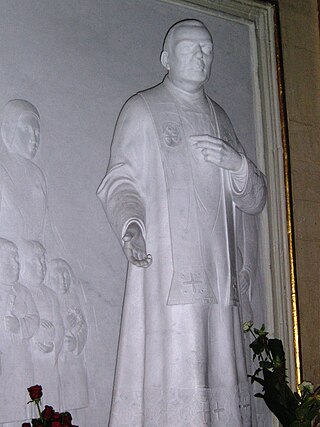
Filippo Smaldone was an Italian Roman Catholic priest and the founder of the Salesian Sisters of the Sacred Hearts. Smaldone is best known for his extensive work with the deaf during his lifetime. Smaldone was a gifted preacher known for his commitment to proper catechesis and to the care of orphans and the mute, which earned him civic recognition.

Bernardo da Corleone was a Sicilian Capuchin friar.

Johannes Ludovicus Paquay, also known as Valentinus, was a Belgian Roman Catholic priest and a professed member from the Order of Friars Minor. He was a popular confessor and noted preacher while serving in various leadership positions in the house he was stationed in; he was also known for his popular devotion to the Eucharist and the Sacred Heart and promoted these devotions to the faithful and to his conferees alike.
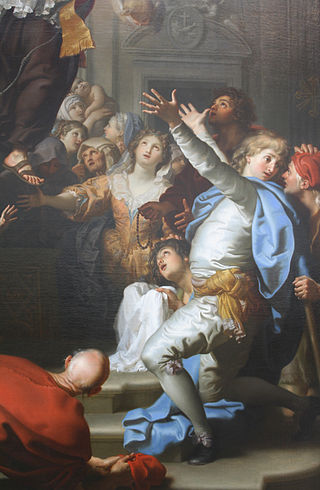
Tommaso da Cori - born Francesco Antonio Placidi - was an Italian Roman Catholic priest and a professed member of the Order of Friars Minor who lived as a hermit for much of his religious life. He gained fame as a noted preacher throughout the region where his hermitage was located and for this became known as the "Apostle of the Sublacense".

Nazju Falzon was a Maltese cleric and a professed member from the Secular Franciscan Order. He did not become an ordained priest because he did not feel he was adequate enough for such an honor. He became an apt catechist and noted for his commitment to religious instruction.
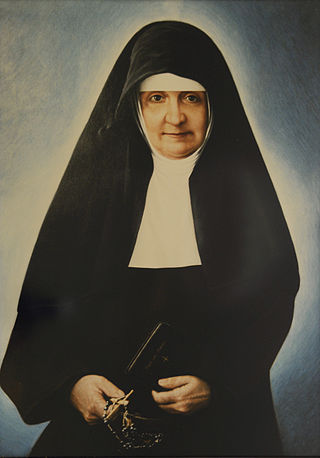
María Bernarda Bütler, born Verena Bütler, was a Swiss religious sister. She founded the Franciscan Missionary Sisters of Mary Help of Sinners and served in the missions in Ecuador and Colombia. Bütler worked for the care of the poor in these places until her exile from Ecuador and entrance into Colombia where she worked for the remainder of her life. The congregation moved there with her, and continued to expand during her time there until her death.
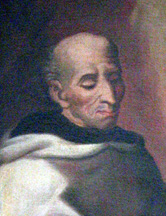
Angelo Paoli, O.Carm – born Francesco – was an Italian Catholic priest and a professed member from the Carmelites. Paoli became known as the "father of the poor" due to his strong charitable outreach, for which he received praise from a number of cardinals and other prelates while living in Rome. This extended to his friend Cardinal Giuseppe Maria Tomasi and to Popes Innocent XII and Clement XI, who both offered him the cardinalate, which he refused.

Giulia Salzano was an Italian Roman Catholic professed religious and the founder of the Catechetical Sisters of the Sacred Heart of Jesus (1905). Salzano served as a teacher prior to becoming a religious and since 1865 worked in Casoria as a teacher for children where she demonstrated herself as an apt catechist and instructor.

Esțfān Nehmé, born Yūsuf Nehmé, was a Lebanese Maronite professed religious from the Lebanese Maronite Order. Nehmé worked to alleviate people's pain during World War I through the distribution of food to those suffering from famine and was known for an intense devotion to the Mother of God. He worked in the fields of his convent and other monasteries and also worked in construction for a brief period, he became well known and other monasteries sought him to live with them for his spiritual insight and work ethic.

Maria Domenica Mantovani was an Italian Roman Catholic professed religious, and the co-founder of the Little Sisters of the Holy Family; she established them alongside Giuseppe Nascimbeni. As a nun she received the religious name of Maria of the Immaculate.
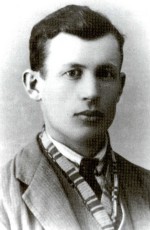
Claudio Granzotto was an Italian professed religious from the Order of Friars Minor and a noted sculptor. Granzotto's works were a conduit for his religious expression and are reflective of his dedication to use sculpting to evangelize to others.

Luigi Maria Monti, CFIC was an Italian Roman Catholic professed religious and the founder of the Sons of the Immaculate Conception.
Maximiano Valdés Subercaseaux - in religious Francisco - was a Chilean Roman Catholic prelate who was a professed member from the Order of Friars Minor Capuchin and served as the first Bishop of Osorno from 1956 until his death. Valdés discerned his call to the priesthood while with his parents in Europe and was ordained as a priest in Venice after completing his studies in Rome but continued further formation amongst the Franciscans in Europe before making his return to Chile. He was the first Chilean to have become a Capuchin friar. Valdés dedicated his episcopal career to the poor and he often visited the poor regions around his diocese while remaining a staunch advocate for a peaceful resolution to the Chile-Argentina border disputes; his last words also contained a desire for there to be peace between the two feuding nations.

Maria Llorença Requenses Llong was a Spanish nun and the founder of the order of the Capuchin Poor Clares. Llong founded the Ospedale degli Incurabili Santa Maria del Popolo in Naples which received numerous papal privileges from Pope Leo X and Pope Adrian VI.

Josep Tous Soler was a Spanish Roman Catholic priest and a professed member of the Order of Friars Minor Capuchin - a branch of the Franciscan Order. Upon becoming a friar he was called by the religious name Josep of Igualada and went on to preach across both Spain and France.
Giuseppe Oddi was an Italian Roman Catholic professed religious - though not a priest - of the Franciscan Order of Friars Minor Capuchin. He felt drawn to religious life after his adolescence and was resolved to become a Franciscan upon seeing the example that Mariano da Roccacasale set. Upon his profession of vows he assumed the religious name of "Diego da Vallinfreda". Oddi was beatified - alongside Mariano da Roccacasale - when Pope John Paul II presided over the late Franciscans' beatification on 3 October 1999.

Khalīl al-Haddād, OFM Cap., also known as Ya'Qūb from Ghazīr, was a Lebanese Catholic priest and Capuchin friar. He was the founder of the Franciscan Sisters of the Cross, and a noted preacher and founder of various orphanages and schools across Lebanon. Presidents of the state honored him with various awards, while the populace compared him to the likes of Vincent de Paul and John Bosco.
Elisabetta Maria Satellico – in religious Maria Crocifissa – was an Italian Roman Catholic professed religious from the Poor Clares who served as her convent's abbess.

María del Carmen González-Ramos García-Prieto de Muñoz, also known by her religious name María del Carmen of the Child Jesus, was a Spanish Roman Catholic professed religious and the founder of the Franciscan Sisters of the Sacred Hearts. She married in mid-1857 – against her parents' advice – to a brash and dissolute husband and secured his repentance not too long before his death.

Arsenio da Trigolo, OFM Cap., was an Italian Catholic priest and a professed member from the Order of Friars Minor Capuchin.


















